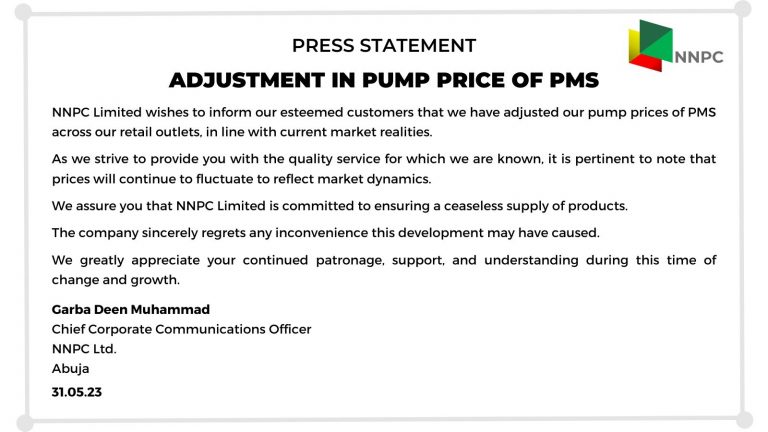
As fuel subsidy removal becomes a reality in Nigeria, the Nigerian Midstream and Downstream Petroleum Regulatory Authority (NMDPRA) has said it is ready to issue licenses to companies interested in importing Petroleum Motor Spirit (PMS).
Chief executive officer of NMDPRA, Farouk Ahmed, made this known to journalists on Tuesday, amid calls by business leaders for the Nigerian National Petroleum Company Limited (NNPCL)’s import monopoly to be dismantled. He said the criteria for importing kerosene and diesel will be applicable to the importation of fuel.
Nigeria’s new president, Bola Tinubu, announced the removal of fuel subsidy during his inaugural address on Monday. The announcement, which triggered the increase of pump prices by marketers, has also resulted in fresh fuel scarcity across the country.
Register for Tekedia Mini-MBA edition 19 (Feb 9 – May 2, 2026): big discounts for early bird.
Tekedia AI in Business Masterclass opens registrations.
Join Tekedia Capital Syndicate and co-invest in great global startups.
Register for Tekedia AI Lab: From Technical Design to Deployment (next edition begins Jan 24 2026).
However, Ahmed said there are a lot of conditions to be met before you are given a license to import petrol.
“I cannot give you all the rundown now but I can tell you that just the way marketers import diesel or jet kero, there are conditions for all that and the same condition will apply to those who want to import premium motor spirit (PMS),” he said.
In 2017, the NNPC moved from importing around 90 percent of the petroleum products consumed in Nigeria to being the sole importer. The idea was to ensure an adequate supply of petroleum products – mitigating cases of fuel scarcity.
But the NNPC Limited was incorporated in 2021, following the dictates of the Petroleum Industry Act (PIA). However, the NNPCL remained the sole importer of PMS against the backdrop of subsidy payments. The company said earlier this year that it pays N400 billion monthly to keep the cost of fuel low in the country. On Monday, the NNPCL said that it is owed N2.8 trillion by the federal government as cost of subsidy payments.
With the removal of the subsidy, calls for the NMDPRA to issue importation licenses to companies other than the NNPCL have been on high. The NNPCL on Monday announced the upward review of pump prices across the country, with the cost per liter rising as much as N537.
PRESS STATEMENT
ADJUSTMENT IN PUMP PRICE OF PMS
NNPC Limited wishes to inform our esteemed customers that we have adjusted our pump prices of PMS across our retail outlets, in line with current market realities.
As we strive to provide you with the quality service for which we… pic.twitter.com/sL0tePldqg
— NNPC Limited (@nnpclimited) May 31, 2023
Under section 197 (2) of the PIA, only companies that are lessees producing crude oil and/or condensates or who are holders of crude oil refining licenses are eligible to supply wholesale petroleum liquids (including petrol importation).
The Petroleum Industry Act also empowers the NMDPRA to issue licenses to refiners or producers of crude oil, the regulation but provides that the minister of petroleum must approve such licenses.
The launch of Dangote Refinery, which is expected to begin the supply of refined petroleum products by the end of July, is not expected to bring immediate relief to the high cost of fuel that the subsidy removal has unleashed.
But industry experts say issuing importation licenses to many companies will encourage healthy competition that will drive down the cost of PMS.



